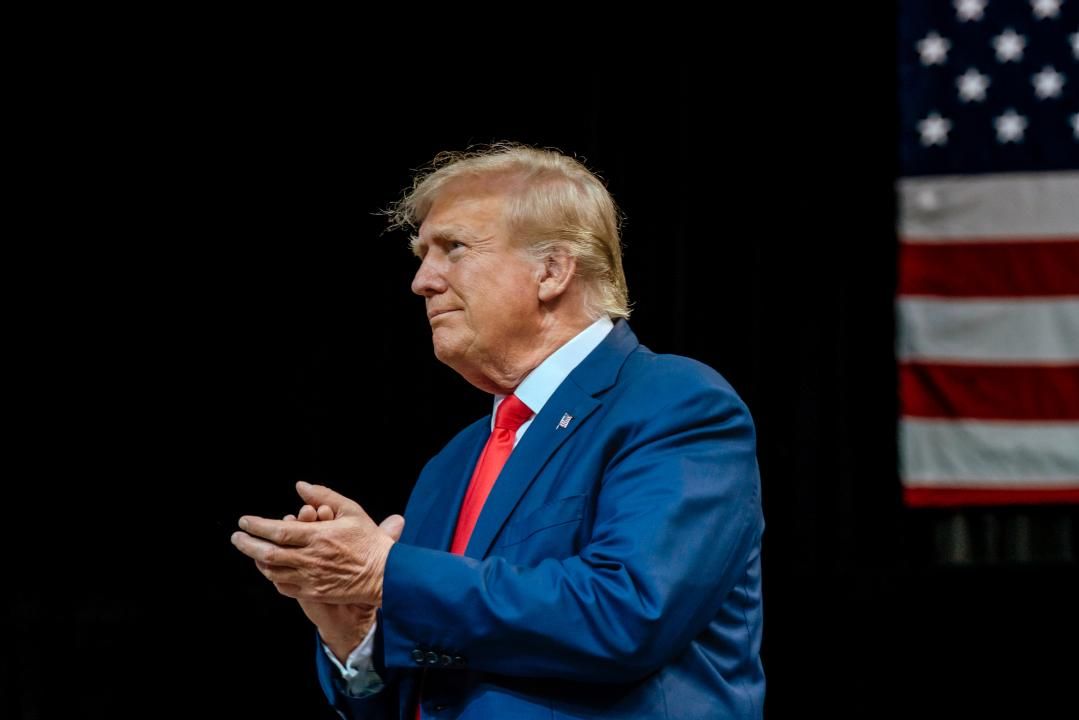Georgia Judge Orders 2 Trials for Defendants in Trump Election Case

A judge Thursday granted former President Donald Trump and 16 others a separate trial from two of their co-defendants who will go to trial next month in the Georgia election interference case.
The judge, Scott McAfee of Fulton County Superior Court, has laid out an expedited trial schedule for Kenneth Chesebro and Sidney Powell, two lawyers who helped Trump try to stay in power after losing the 2020 election. The two had invoked their right under Georgia law to seek a speedy trial, in part to avoid the high cost of a more protracted legal fight.
Their trial is set to begin with jury selection Oct. 23. McAfee, in a seven-page order Thursday, said that he hoped to have a jury seated by Nov. 3 to comply with the speedy trial law.
A trial date for Trump and the other 16 co-defendants has not been set. In his order, McAfee described what was to come as a “mega-trial.” But he also raised the possibility that those 17 might not all be tried together in the end, if some make successful arguments to break off their cases.
“Additional divisions of these 17 defendants may well be required,” the judge wrote. “That is a decision for another day once the many anticipated pretrial motions have been resolved and a realistic trial date approaches.”
All 19 defendants were charged in August in a wide-ranging state racketeering indictment after an investigation into election interference in Georgia, which Trump lost in 2020 by fewer than 12,000 votes. In the weeks after Election Day, Trump made baseless claims that he was the victim of significant electoral fraud. The indictment says that he and the other 18 defendants were part of a “criminal organization” that sought to overturn his loss in Georgia in various ways.
Questions about the size, shape and timing of trials for a case of such magnitude have yet to be fully resolved. The Fulton County District Attorney’s office, which is leading the prosecution, had wanted all 19 defendants to be tried together, arguing in a filing Tuesday that “breaking this case up into multiple lengthy trials would create an enormous strain on the judicial resources.”
But in his order Thursday, McAfee noted that some lawyers would need more time to prepare. He also noted that the Fulton County courthouse “simply contains no courtroom adequately large enough to hold all 19 defendants.”
Further complicating matters is the fact that several defendants are seeking to move their cases to federal court. If just one of them succeeds, there is a possibility that the whole group could be forced into the federal system, although experts say the law on this issue is not clear.
Regardless, the prospect of a federal judge presiding over a state trial dimmed somewhat last week, when Judge Steve C. Jones, a U.S. district court judge, rejected a removal request from Mark Meadows, the former White House chief of staff and a defendant.
Meadows has appealed. Jones is scheduled to hold hearings next week on similar requests from Jeffrey Clark, a former Justice Department official who sought to intervene after the Georgia election, and three other co-defendants who served as bogus electors on Trump’s behalf.
Trump’s lawyer in Georgia, Steven H. Sadow, has indicated in court documents that the former president may also soon ask to have his case moved to federal court.
On Thursday morning, as McAfee held a hearing on a number of pretrial motions, tensions between the prosecution and defense were palpable. Brian T. Rafferty, a lawyer for Powell, accused the district attorney’s office of failing to respond to his request for certain documents as part of the discovery process.
At another point, Scott Grubman, a lawyer for Chesebro, angrily accused Daysha D. Young, a Fulton County assistant district attorney, of engaging in a “personal attack” on Grubman’s co-counsel, Manny Arora, after Young mentioned a 2010 incident in which a judge barred Arora from contacting grand jurors in a separate case.
Chesebro was indicted based on his role as an architect of the bogus electors scheme. His lawyers have called for his case to be dismissed, arguing that he was merely “researching and finding precedents in order to form a legal opinion, which was then supplied to his client, the Trump campaign.”
Powell was indicted on charges relating to the copying of sensitive voter system data in rural Coffee County, Georgia, by Trump allies seeking evidence of fraud. On Wednesday, her lawyer filed a motion to dismiss the case, arguing that county elections officials had allowed access to the elections system there in January 2021.
“This means that no data was stolen, there was no fraud, and nothing was done without authorization,” the motion said.
This article originally appeared in The New York Times.









